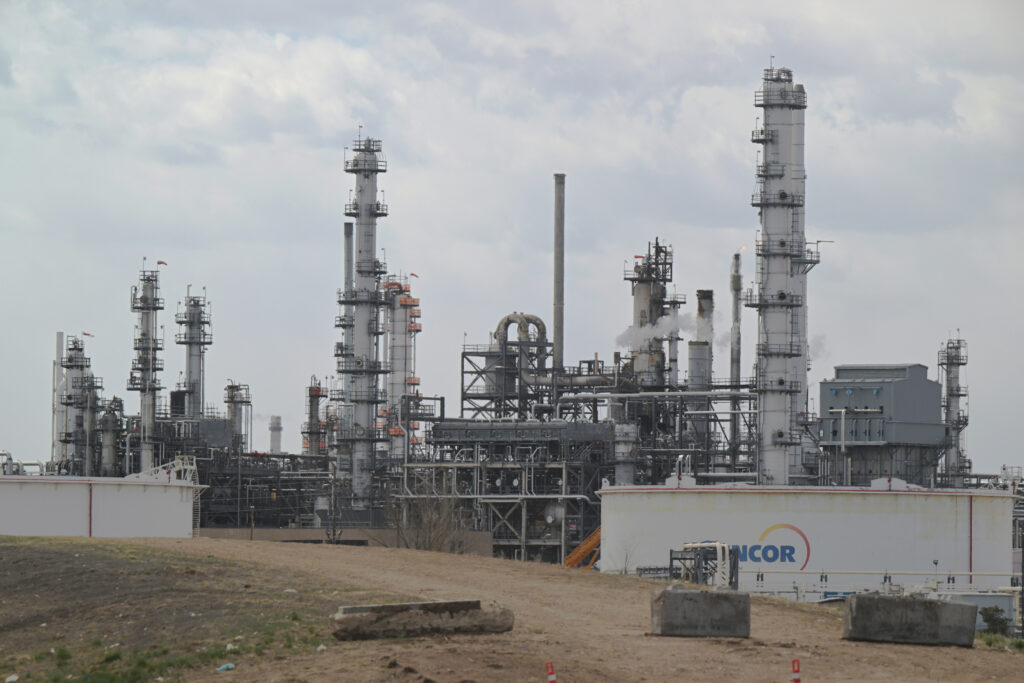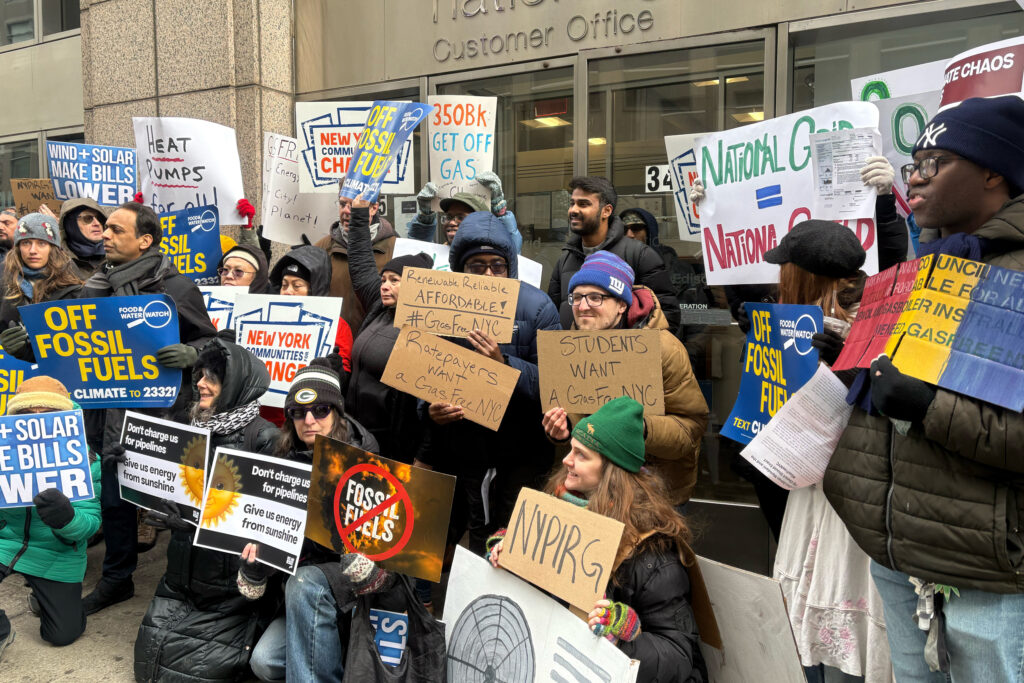The Pittsburgh Foundation, a philanthropic organization founded in 1945, has a simple mission statement: “to improve the quality of life in the Pittsburgh region.” One of the foundation’s main priorities for its grants is environmental action, focusing on environmental justice, protecting “the health of our communities” from long-term industrial pollution, and support for initiatives that address “climate change and health inequities.”
Their grants go to organizations who work locally and regionally to fight for more stringent regulation of the oil and gas industry, study how fracking impacts public health, and raise awareness about climate change and how it affects the most vulnerable communities.
But the lobbying company the foundation hired to represent its interests before the state legislature and other governing bodies is at odds with its environmental commitments, according to a new report from F Minus, a project tracking lobbying for fossil fuel interests at the state level that is based in Pennsylvania.
Since 2020, the Pittsburgh Foundation has employed the firm Buchanan, Ingersoll and Rooney, paying the company $278,000 to aid its policy advocacy, even as Buchanan also worked on behalf of 16 fossil fuel-related companies, including EQT, the largest natural gas producer in the United States. EQT leases or owns 610,000 net acres in Pennsylvania.
“Their choice of lobbying firm is directly in conflict with their own grantmaking,” said James Browning, the executive director at F Minus. “It is causing the problems that their own grantees are trying to solve.”
Although firms are supposed to avoid lobbying on opposite sides of the same bill, there is no rule that prevents general conflicts of interest, Browning said. The Pittsburgh Foundation’s grantees include environmental organizations that work on issues related to public health and fracking, like the FracTracker Alliance, Food and Water Watch, and the Southwest Pennsylvania Environmental Health Project, which was “established in 2011 to respond to the health needs of county residents who believe their health has been, or could be affected by local shale gas development.”
Through Vice President for Communications and External Affairs Doug Root, the Pittsburgh Foundation declined to comment on its relationship with Buchanan, Ingersoll & Rooney for this article. Buchanan did not respond to requests for comment.
Buchanan and EQT are both members of the Marcellus Shale Coalition, a trade group for the natural gas industry in Pennsylvania whose members include oil and gas companies such as Range Resources, Shell, and Coterra Energy. Marcellus Shale Coalition’s “staffers work to influence drilling-related legislation, stage conferences and educational events on gas extraction, and represent the industry in the press,” according to State Impact Pennsylvania.
EQT made headlines in 2022 when residents in Greene County alleged that the company had inadvertently created a “frac-out,” a kind of drilling accident involving fracking fluids leaking into a nearby abandoned well, in this case causing water contamination.
In 2018, EQT was fined $1.14 million for contaminating water in Tioga County. In 2019, the Pennsylvania Department of Environmental Protection fined the company $330,000 for erosion violations in Allegheny County. Reporting from PA Environment Digest in 2023 showed that the DEP issued at least 21 notices of violation to EQT “for defective oil and gas well casing and cementing” between 2016 and 2022.
The Marcellus Shale Coalition opposes House Bill 170, which would increase the distance that must exist between Pennsylvanians’ homes and fracking infrastructure from 500 feet to 2,500 feet, and expand the buffer zone for schools and hospitals to 5,000 feet. The Marcellus Shale Coalition argued that the bill was “dangerous” and would “effectively ban natural gas development in Pennsylvania.”
FracTracker Alliance, a Pittsburgh Foundation grantee in 2018, 2019 and 2021, advocated for the bill’s passage in October, writing that risks posed by oil and gas extraction to Pennsylvania residents “can and should be mitigated by enforcing a strict protective buffer between water supplies and homes and oil and gas operations. The passage of House Bill 170 will go a long way towards making our state a safer place to live by extending these protections to 2,500 feet.”
Research from the National Institute of Environmental Health Sciences has shown links between living near unconventional drilling and increased rates of hospitalization, asthma, and childhood leukemia in Pennsylvania.
Pittsburgh institutions have some of the most “jarring juxtapositions” between their lobbying firms’ fossil fuel agendas and their stated environmental interests, Browning said. One reason for the disconnect is the longstanding economic and political influence of fossil fuel companies in western Pennsylvania, which dates back to the beginnings of the coal industry and has continued in the current age of fracking.
“The fossil fuel industry has been deeply entrenched here for generations,” said Aly Shaw, a Pittsburgh-based researcher at Little Sis, a watchdog group, who worked with F Minus on an earlier report about Pittsburgh’s connections to fossil fuel lobbyists. “Even though our politics here have changed for the better recently, we still have a lot of old school politicians that are in place because of their alliances with the fossil fuel industry.”
Shaw said that local institutions hire lobbying firms like Buchanan because of the assumption that they can access and sway Republicans in the state legislature. From 2011 to 2023, Republicans controlled both the state senate and the Pennsylvania House of Representatives.
This story is funded by readers like you.
Our nonprofit newsroom provides award-winning climate coverage free of charge and advertising. We rely on donations from readers like you to keep going. Please donate now to support our work.
Donate Now
“It’s common wisdom that if you want influence in Harrisburg, you have to hire these lobbying firms that have connections to the Republicans,” she said. But Shaw questioned whether nonprofits and other public institutions are really getting the best results when they hire firms like Buchanan. “They are being hired by these companies with much bigger budgets, and they’re always going to prioritize their biggest clients,” she said.
Another reason for Pennsylvania institutions’ complicated web of ties to fossil fuel companies is the lack of transparency around lobbying in the state. “Pennsylvania’s public integrity laws are so weak, and its disclosure systems for lobbying data and campaign finance data are so weak,” Browning said. “That makes it hard to call people out. It’s hard to tell exactly what the lobbyists are doing.” The Center for Public Integrity assigned Pennsylvania a D for its lobbying disclosure in 2015.
F Minus is hopeful that by calling attention to these conflicts of interest, larger nonprofits and public institutions may choose to hire other firms who do not have relationships with the oil and gas industry.
“Faced with social and economic pressure, I think people are going to change their behavior,” Browning said. “We’ve reached the point where the climate crisis is so bad globally, and fracking impacts are so bad locally in Pennsylvania, that it’s unconscionable to stay with this firm.”

















